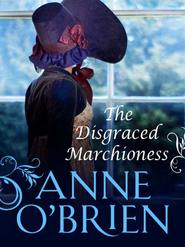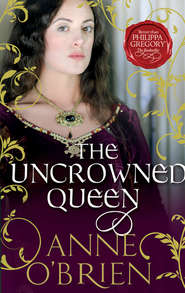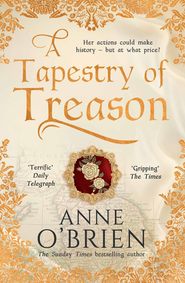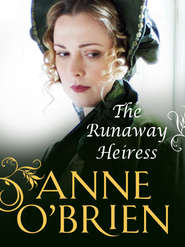По всем вопросам обращайтесь на: info@litportal.ru
(©) 2003-2025.
✖
Regency High Society Vol 6: The Enigmatic Rake / The Lord And The Mystery Lady / The Wagering Widow / An Unconventional Widow
Настройки чтения
Размер шрифта
Высота строк
Поля
‘Will you tell me about him, Judith? Lord Faringdon? After all, he will be my employer and I would wish to have some knowledge of his requirements.’
Judith tutted—but in reluctant agreement. Finding an experienced butler and cook at such short notice was proving difficult enough, even without the educated and proficient per son. So if Sarah was quite determined…
‘Are you indeed sure?’
‘Certainly I am. I think that heaven has smiled on me in dropping this chance at my feet. I would be foolish to ignore it.’
The ladies were taking an airing in Judith’s barouche.
‘I would not put it quite in those words. Neither, I fear, will you after living under my brother’s roof. He can be somewhat—ah, unreliable.’
‘Unreliable?’ This was not what she had expected, although Lady Beatrice’s unexplained disapproval could not be overlooked. ‘I wish that you would tell me about your brother. I do not think I have ever heard you speak of him. And why your mama is so…so…’
‘So unforgiving,’ Judith supplied with a rueful smile. ‘Well, now. He is older than I by a little less than ten years—so we were never close as children. I admired him—the splendid older brother, as you might imagine. He had no time for me, of course—the younger sister still in the nursery—but I worshipped from afar.’ She wrinkled her nose a little as she searched her memories. ‘By the time that I had my coming-out Season, he was no longer living at home. I suppose the truth is that I do not know him very well, although he was never unkind to me as some brothers might be,’ she added ingenuously.
‘Does he have red hair like you?’ Sarah cast a quick glance at Judith’s fiery ringlets.
‘No.’ She chuckled, reasonably tolerant of her own dramatic appearance, even though it prevented her from wearing her favourite shade of pink. ‘Fortunately for him, Sher is dark like the rest of them. I was the only one to be afflicted by Mama’s colouring. How unfair life is! But his eyes are grey—sometimes almost silver—not green like mine. He is outrageously handsome, of course.’
Of course. Sarah knew only too well, claiming close acquaintance with the charm and good looks of both Henry and Nicholas Faringdon.
‘And he lives in Paris, I understand.’
‘Yes. Mostly. Although he has property in England. Sher married a French lady—before I was myself married—Mademoiselle Marianne de Colville was her name. The marriage was very sudden, so I think it must have been a love match. I only met her twice, once when they were wed, but I remember that she was an arresting lady—not a beauty exactly, but one of those dazzling women who take the eye, with dark hair and dark eyes. Very French, you understand, with a most stylish wardrobe. I remember being highly envious as a young girl, when fashion meant far more to me than it does now…’ Judith did not notice Sarah turning her head to survey an approaching landaulet and to hide a smile at this remarkable admission. ‘But anyway, she died in Paris more than three years ago now. It was all very sad and sudden—quite tragic—some sort of fever that did not respond to any of the advice given by the doctors. We were all quite taken by surprise—from what we knew of the lady, Marianne had always seemed so full of life. But there… She was buried in France, probably at her family home somewhere in Provence.’ Judith lifted her hand in recognition of the occupants of the landaulet. ‘I did not know Lady Portinscale was back in town. But where was I…? Sher does not talk about Marianne and her death. I expect that he was stricken by remorse, losing the love of his life. Not that you would guess from the manner in which he has conducted his life since,’ she added drily. ‘But perhaps I should not have said that.’
Sarah thought about this. Knowing Judith well, there was no need to ask the lady’s enigmatic meaning. The Countess would assuredly confide every detail to her friend before they completed the first circuit of Hyde Park. ‘Why do you call him Sher?’
‘It is a family name—Joshua Sherbourne Faringdon. A childhood thing—Hal and Nick always called him that. I think I got into the habit because Mama disapproved. It was not the thing, she said. But Sher did not object—he always did what he could to annoy her.’
‘And so he has a daughter?’
‘Yes. Celestine. She must be a little older than John. Perhaps eight years old now.’
‘And has lived in the country.’
‘Sher sent her to England, even before her mother died, when she was quite a little girl, hardly more than a baby,’ Judith explained. ‘He has a house at Richmond on the edge of the Park, so the child has grown up there. He thought it better than keeping her in Paris—or even coming to London. She travelled with her nurse. One cannot but pity her, brought up by servants, with no other company and no one to play with. Perhaps I should have brought her to live with us—but that was before the birth of Giles and we set up our own nursery. Celestine would have been just as lonely in Grosvenor Square as in Richmond.’
‘Poor child. She will have missed her mother.’
‘I suppose. It will be better for her to be in London with a governess. I barely remember her, but on the one occasion Sher brought her to visit us when he was last home it seemed to me that she was a very plain child, silent for the most part and quite timid. As I said, she has not had an enviable life.’ Judith slanted a glinting smile at Sarah. ‘Perhaps it is a good plan after all—that you take over the care of her.’
Inclined to agree, Sarah sat quietly, piecing together her newly acquired knowledge. Poor child indeed, robbed of both parents. Had her father done anything to keep in touch with her? Sarah decided that, as a prospective employee, it was a question too delicate to ask. For herself, she could not imagine abandoning her own son in quite a different country, to be raised by paid employees who had no personal connection with the child. But, she supposed, that was not for her to question.
‘Why does your mama not talk of him?’ She returned to the blank spaces in her knowledge. ‘As the only son and heir and now head of the family I would have expected her to welcome his return.’
‘Not at all!’ Judith took a breath. Here it came! Gossip was the spice of life to her. ‘Sher has… well, he has a reputation. If you had been out and about in polite society, dear Sarah, you would undoubtedly have heard.’
‘Oh.’ Sarah nodded thoughtfully. Lady Beatrice’s caustic words had suggested that such might be the case.
‘A string of mistresses. And very expensive.’ With little encouragement necessary, Judith now had no compunction in filling in the detail. ‘When he was younger, Sher was often in debt and, when Papa was alive, he expected him to bail him out. Gambling, you understand. Horses and cards. He lost a great deal of money playing vingt-et-un at one of the gaming hells in Pall Mall. I think it was the cause of some harsh words between him and Papa. Understandable, of course, but words that became unforgivable—on both sides.’
‘I see.’ Sarah’s eyes widened in amazement. She had had no idea.
‘And then there was the notorious Grayson affair in London.’ Judith leaned confidingly toward her friend, all animation. ‘The lady was married! And her family was one of the foremost of the ton. I remember nothing of it but I am told that it was all very embarrassing. That was the occasion on which Sher first went to Paris. Papa sent him there until the gossip died down, refusing to pay any further debts unless he complied and put his life in order. It was the talk of every withdrawing room in town. I think that might have been the final straw for Mama, to hear the whispering come to a halt every time she entered a room. So Mama prefers it when he makes his home in Paris. Although,’ Judith confided, finally, ‘she had not entirely given up on the thought of his remarriage to reform his wicked ways. Although who would agree to marry him, I cannot imagine. Even though he is very rich, most mamas of hopeful débutantes would not willingly look for the connection.’
‘I can well understand,’ Sarah agreed in lively horror and some degree of fascination.
‘So, you see, Sher acquired the reputation as a rake and something of a ne’er-do-well. I think perhaps he did not deserve it. He was very young.’ Judith’s pretty lips pursed as she tried for an honest judgement on her brother. ‘I am extremely fond of him. But there was also the scandal of the ladies of the chorus at Covent Garden!’
‘Really?’ Sarah found the recital riveting. ‘More than one? I had thought that all Faringdons had an eye to propriety.’
‘Not Joshua. He has an eye to every pretty member of the female sex.’ Judith sighed. ‘I shall say no more! Except to suggest that you might—indeed you might—be advised to reconsider your application for a position in his household.’
Sarah laughed and reassured her, knowing that as housekeeper her path would rarely cross with that of her noble employer. How Lord Joshua Faringdon might choose to live his life would have nothing whatsoever to do with her and have no bearing on her own duties in his establishment. But Judith’s artless confidences left her to consider that she was not the only one to have a brother in the form of a skeleton in the family closet. She chewed her bottom lip thoughtfully. And that Faringdon skeleton was now her employer.
Two days later Judith’s reluctant acceptance of Sarah Russell’s new status had undergone a sea change. On receipt of a letter from Paris, she was indeed prepared to say more, and did so unequivocally on running Sarah to ground in the private garden at the centre of Grosvenor Square where, despite the blustery weather, she threw a ball for John to chase and catch.
‘Sarah! I have just received a letter from my brother. I am entirely convinced that you should not take up the position in his house.’ The fact that the letter was remarkably frank and detailed had given her only a moment’s pause. If she had known how painstakingly Lord Joshua had constructed it, how much time he had spent in plotting the scandalous content, and how much he was prepared to gamble on his flighty sister’s inability to remain silent when in possession of a delicious piece of scandal, she would have been astounded. But she did not know any of these things and so jumped to the hoped-for conclusion. Presumably Sher did not care one jot about the comment that he was about to provoke in London. He was entirely without principle and honour, despite his birth and upbringing as a gentleman. As a Faringdon! It all went to prove that Sarah should not find herself in the role of housekeeper in the resulting den of iniquity.
‘Why on earth not? What can he have said?’ Sarah handed the ball to the nursemaid who accompanied her and joined Judith on one of the wrought-iron seats, which provided some limited degree of comfort and shelter from the wind. The day was too cool for them to sit long.
Judith did not reply directly, but allowed her thoughts on her brother to develop. ‘I had thought that with age his lifestyle might be less rackety. After Marianne’s death I had thought he was a little sad. And he has a daughter to consider, of course… But it is not so. He is as irresponsible as he ever was.’ She frowned down at the closely written sheets that she still clutched in her hand as if she might detect the reason for her brother’s outrageous manner by absorption from the paper and ink.
‘More scandal?’ Sarah enquired.
‘Scandal! Sher has written to tell me the reason for his return. I am not surprised that he did not tell Mama!’
Sarah merely tilted her head in enquiry.
‘It seems that he has suffered some injury. Caused by the husband of the lady whom he…’ she leaned close and whispered sotto voce ‘… the lady whom he was intent on seducing. That gentleman was unfortunate enough to discover Sher and his… his most recent flirt in a secluded anteroom at a reception at the British Embassy where they were… Well, I am sure you can imagine—but the gentleman was irate—there was some violence —and the result is a terrible scandal in Paris. As well as being physically incapacitated, Sher is not being received. So has decided to return to London until another on dit takes its place and he will be accepted again.’
‘He told you that?’ Sarah could not imagine a brother regaling his sister with such salacious detail. Clearly he had.
‘Yes. I did think…I wonder why? But perhaps he thought that news would spread and lose nothing in the telling—so he would tell me the truth first.’
‘I suppose.’ Sarah hid her doubts—could the gossip be worse then the truth?—but decided that perhaps the reason for the detailed letter was irrelevant.
‘Furthermore—’ anger now flashed in Judith’s eyes and her voice began to rise, regardless of the proximity of the nursemaid ‘—he informs me that he will be bringing with him to London none other than the Countess of Wexford. Would you believe it!’
Sarah remained complacent enough. ‘I think I do not know the lady.’
‘Of course not. No one of good ton would claim to know the Countess of Wexford!’ Bristling with disgust, Judith abandoned the letter and snapped her parasol into place as a stray sunbeam slanted across the garden. ‘I expect that you will not have crossed her path. She is a lady of considerable presence and…and questionable morals. Rumour says that her origins are not what they might be. Merchant class from Dublin.’ Judith wrinkled her nose. ‘But she is quite lovely, a widow, titled and with enough wealth to take her place in polite society. She is accepted by everyone except the highest sticklers—you can meet her anywhere, but she would never achieve tickets of admission for Almack’s. It is generally accepted that she is on the hunt for a lover or a husband. I presume she is Joshua’s mistress! And, would you believe, will be living in the house with him in Hanover Square.’
‘Oh! She will?’ Lord Faringdon’s new housekeeper did not know what she felt about this revelation, but still decided that, in truth, it would have little bearing on her own position.
The Countess of Painscastle thought no such thing. ‘Indeed, Sarah, it is not suitable for you to take on the running of that house. I would even go so far as to forbid it!’
‘Judith…’ Sarah sighed as she watched her son’s limitless energy as he dashed about the garden. ‘Your care for me overwhelms me—but I really do not see why I should not take the post. If Lord Faringdon takes the Countess of Wexford as his mistress, it will make no difference to my position in organising the smooth running of the house or in my appointment as governess to his daughter. And if your brother does not intend to remain here in London any longer than the brief life of the scandal in Paris—then I do not see the problem. Perhaps he will continue to employ me as governess when he leaves, if he approves my work. Presumably the child will then return to Richmond and I could go there with her. My reputation is in no danger, Judith. I see no problem.’











